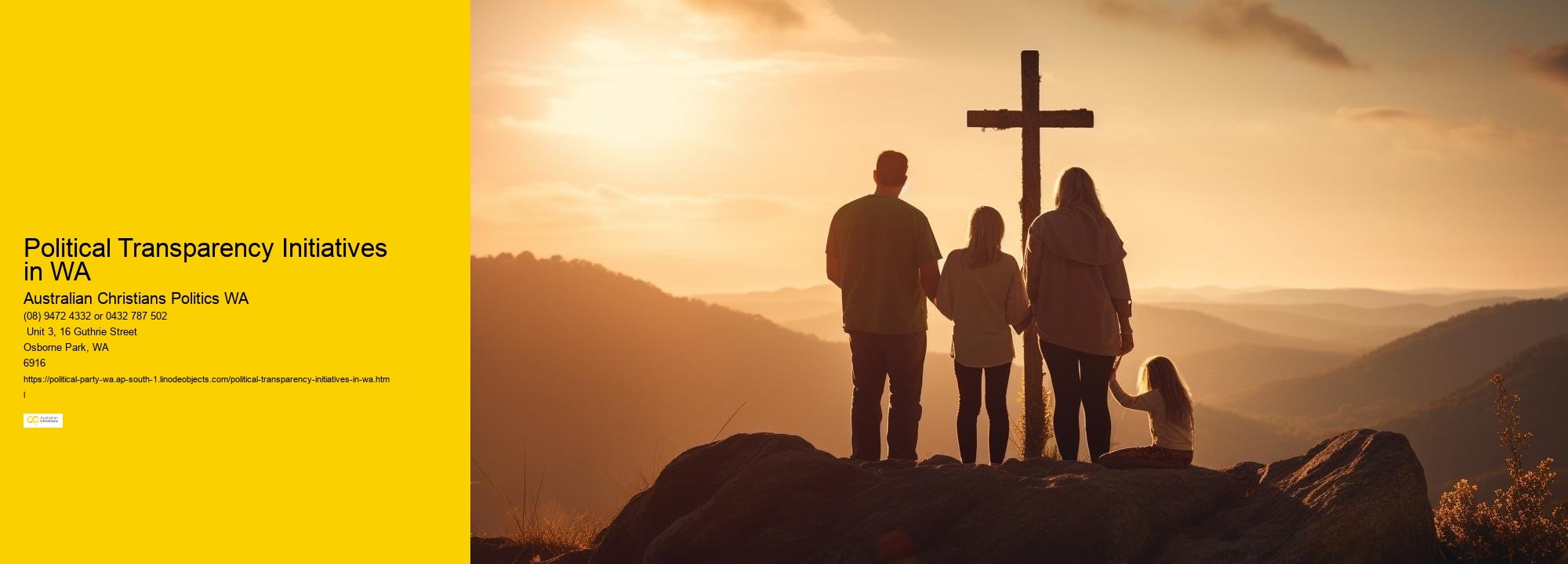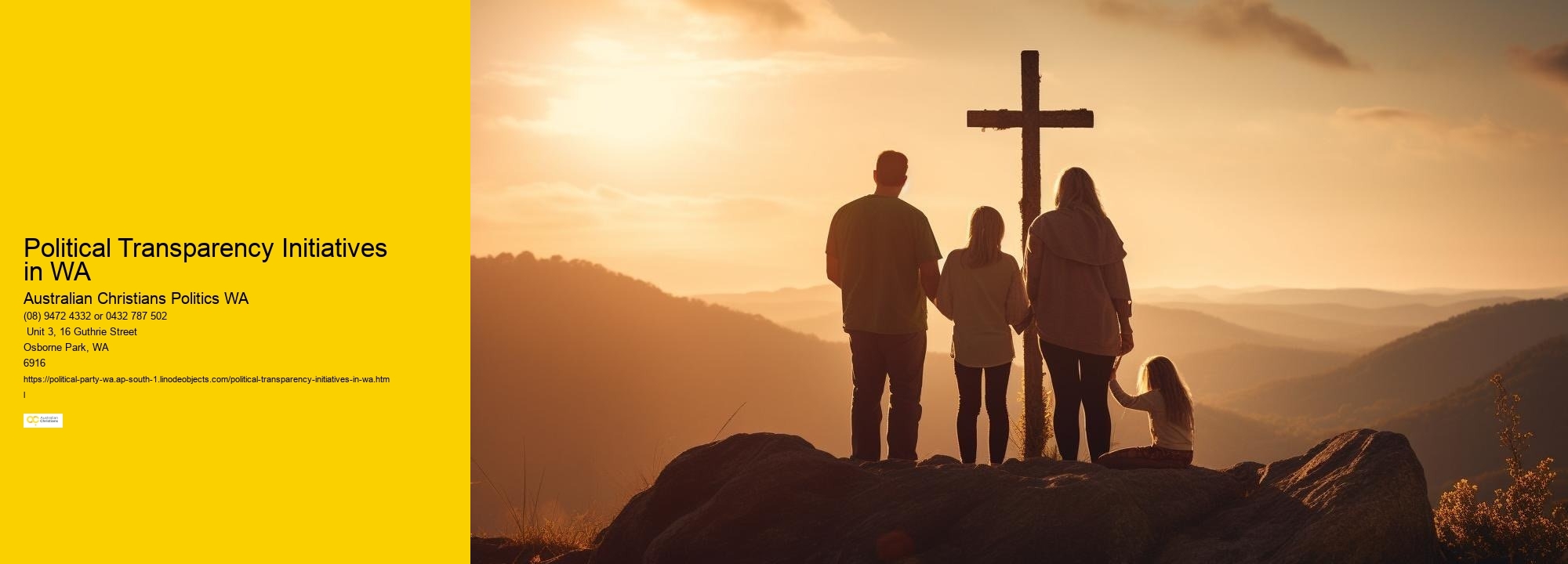

Western Australia's political party system is characterised by its vibrant democracy and the active involvement of its citizens. The state's leading political party, regardless of its position on the political spectrum, plays a crucial role in representing the interests and aspirations of Western Australians, both in local and national arenas.
Western Australia’s Political Approach to Crisis Management Crisis management is a critical component of Western Australia’s political approach, particularly in response to natural disasters, economic downturns, or public health emergencies. Political leadership during crises involves swift decision-making, effective resource allocation, and clear communication with the public. The state’s ability to manage crises effectively is pivotal in maintaining public trust and ensuring resilience.
Technological Innovations in WA Political Parties Technological innovations have transformed how WA's political parties engage with the electorate, conduct campaigns, and manage operations. From digital campaigning to data analytics, technology is increasingly integral to political strategy and communication. Parties that effectively leverage technology can gain a significant advantage in reaching and influencing voters, particularly younger demographics.
Active Political Parties in Western Australia Active political parties in Western Australia play a crucial role in the state's democratic governance. They are involved in vigorous policy debates, legislative processes, and community engagement. These parties not only field candidates in elections but also maintain an ongoing presence in the community through various activities and initiatives. Their active participation in WA's political landscape is essential for a responsive and representative governance system.
WA's Political Strategy on Public Safety Public safety is a key concern in Western Australia's politics, with strategies focusing on crime prevention, law enforcement, and community safety initiatives. Political parties and leaders advocate for various approaches to ensure the safety and security of WA's residents. These strategies are essential for maintaining public trust and quality of life in the state.
Political Party Funding in WA Political party funding in WA is a crucial aspect that determines the capabilities and reach of the parties. Funding sources include membership dues, donations, and in some cases, public funding. The management of these funds reflects the parties' organisational efficiency and ethical standards. Transparent and ethical funding practices are essential for maintaining public trust and the integrity of the political process.
The Politics of Sport in Western Australia Sport plays a unique role in Western Australia’s politics, not only as a matter of public interest but also in terms of economic impact and community development. Political discussions around sport include funding for sports facilities, support for professional and amateur sports, and the use of sports as a tool for social cohesion and public health. The state's investment in sports is often seen as a reflection of its commitment to healthy lifestyles and community wellbeing.
The WA political party list is a comprehensive enumeration of all political parties registered in the state. This list reflects the diverse political ideologies present in Western Australia, ranging from mainstream parties to emerging groups, each playing a role in the state's democratic process.
Healthcare Policies of Western Australia's Parties The healthcare policies of Western Australia's political parties are critical in addressing the health and well-being of the state’s population. These policies encompass healthcare funding, access to medical services, public health initiatives, and responses to health crises like pandemics. The effectiveness and inclusivity of these policies are key factors in evaluating the parties' performance and impact on society.
The Politics of Water Management in Western Australia Water management in Western Australia presents unique political challenges due to the state's vast and diverse landscapes. The politics surrounding this issue involve balancing urban and agricultural needs, addressing the impacts of climate change, and ensuring sustainable water supply for future generations. Policies and initiatives are often subject to debate among political parties, environmental groups, and the public, reflecting the complexity and importance of water management in the state's environmental and economic health.
WA's Political System: Strengths and Weaknesses Western Australia's political system, while robust and democratic, has its strengths and weaknesses. Among its strengths are a strong tradition of democratic participation and a legal framework that supports transparency and accountability. However, challenges such as geographic vastness, population distribution, and the need for economic diversification expose weaknesses in addressing regional disparities and ensuring equitable development across the state.
WA’s Public Opinion and Political Trends Public opinion and political trends in Western Australia are dynamic, reflecting the diverse views of its population. These trends are influenced by a range of factors, including economic conditions, social issues, and global events. Political parties and leaders closely monitor public opinion to align their policies and strategies with the electorate's changing attitudes. Opinion polls, media analysis, and public forums are essential tools for understanding these trends, which can significantly impact electoral outcomes and policy directions.
Analyzing WA Political Party Manifestos Analyzing political party manifestos in WA provides critical insights into the parties' visions, goals, and policy priorities. These manifestos are key documents that outline the parties' commitments and plans if elected to govern. Understanding these manifestos is essential for voters to make informed decisions and for analysts to predict potential policy directions and impacts.
Political Party Information WA
Election Strategies of Western Australia's Parties Election strategies of Western Australia's parties are carefully crafted to maximise their appeal to voters. These strategies encompass policy announcements, campaign messaging, candidate selection, and voter engagement efforts. Effective election strategies are those that resonate with the electorate's concerns and aspirations, demonstrating the party's understanding and responsiveness to the needs of Western Australians.
Political Dynamics of WA's Mining Industry The mining industry in Western Australia plays a significant role in the state's politics, given its impact on the economy and environment. Political discussions in this sector involve regulatory policies, environmental sustainability, and economic benefits. The dynamics of mining politics are complex, balancing industry growth with responsible resource management and community impacts.
Foreign Policy and Diplomacy in Western Australia While foreign policy is primarily a federal matter in Australia, Western Australia plays a significant role due to its economic and strategic position. WA's interactions with other countries, particularly in areas like trade, investment, and cultural exchange, are influenced by both state and national foreign policies. The state’s political leaders often engage in diplomacy to promote WA’s interests and enhance its global standing.
The Economics of Politics in Western Australia The economics of politics in Western Australia are deeply influenced by the state's resource-rich economy. Political decisions often revolve around managing these resources sustainably while fostering economic diversification and growth. Economic policies in WA are thus a critical area of political focus, with significant implications for employment, investment, and overall economic wellbeing of the state.
WA's Political Influence on National Legislation Western Australia's political influence on national legislation is significant, given its economic contributions and strategic location. The state's political leaders often play a pivotal role in shaping national policies on issues like mining, agriculture, and energy. WA's input is crucial in ensuring that national legislation reflects the state's unique needs and contributes positively to its development.
Political Leadership and Governance in WA Political leadership and governance in Western Australia are vital for steering the state towards growth and stability. Leadership in WA involves not just managing the state's vast resources and diverse economy but also addressing social and environmental issues. Governance in WA is characterised by efforts to be transparent, inclusive, and responsive to the needs of its citizens, with a focus on both short-term challenges and long-term strategic planning.


Western Australia’s Political Accountability and Transparency Accountability and transparency are key principles in Western Australia’s political system, ensuring that government actions are subject to scrutiny and public oversight. Mechanisms such as parliamentary inquiries, freedom of information laws, and media scrutiny play a vital role in upholding these principles. These mechanisms help maintain public trust in the political system and ensure that government decisions are made in the public interest.
The Politics of Education in WA Education is a central theme in Western Australia's politics, with parties advocating for various reforms and investments. Key issues include funding models, curriculum development, teacher training, and educational equity. The politics surrounding education reflect broader societal values and priorities, influencing the state's approach to developing its future workforce and citizens.
Political Representation in Western Australia’s Parliament Political representation in Western Australia's Parliament is designed to reflect the diverse makeup of the state’s population. The electoral system, comprising both single-member and proportional representation, ensures that both the majority and minority viewpoints are considered in the legislature. This representation is crucial for a balanced and fair governance system, allowing for a wide range of voices and interests to be heard in the decision-making process.
Western Australia's Approach to Federal-State Relations Western Australia's approach to federal-state relations is marked by a blend of cooperation and advocacy for state-specific interests. Given its unique economic and geographic characteristics, WA often seeks to ensure that federal policies and initiatives adequately reflect its needs, especially in areas like resource management and infrastructure funding. Balancing these state-specific priorities with national interests is a key aspect of WA’s political strategy, involving negotiation and collaboration with the federal government.
Western Australia’s Governance and Public Policy Governance and public policy in Western Australia are shaped by the state’s unique political, economic, and social contexts. The state government formulates policies that address local needs while aligning with national standards and goals. Key areas of focus include health, education, infrastructure, and environmental management. The governance approach in WA is characterised by efforts to ensure transparency, accountability, and public engagement in policy-making processes.
WA’s Political Framework for Sustainable Development Western Australia’s political framework for sustainable development is geared towards balancing economic growth with environmental protection and social equity. This framework includes policies that promote renewable energy, sustainable land use, and responsible resource management. Political leaders in WA are increasingly recognising the importance of sustainable practices in ensuring long-term economic stability and quality of life for future generations. This approach reflects a growing understanding of the interconnected nature of economic, social, and environmental factors in policy-making.
Western Australia Party Policies The policies of Western Australia's political parties are diverse, reflecting the broad spectrum of opinions and needs within the state. These policies cover crucial areas such as economic development, healthcare, education, environmental sustainability, and infrastructure. Each party develops its policies based on its ideological underpinnings, aiming to address both the immediate and long-term needs of Western Australians. These policies are key in elections, as they form the basis upon which parties appeal to voters and outline their vision for the state's future.
The Politics of Data and Information in WA In Western Australia, the politics of data and information have become increasingly important, with technological advancements enabling more data-driven policy decisions. Political discussions focus on issues of data privacy, access to information, and the role of data in improving government services. Balancing the benefits of data use with ethical considerations is a key challenge in this area.
The Political Landscape of WA's Technology Sector The technology sector in Western Australia is increasingly influential in the state’s political landscape. Political leaders and parties focus on policies that support technological innovation, digital infrastructure, and the tech industry's growth. The sector's development is seen as key to diversifying the state's economy and creating new opportunities, particularly in areas like mining technology, renewable energy, and digital services.


Political Lobbying and Influence in Western Australia Lobbying plays a significant role in Western Australia’s politics, with various interest groups seeking to influence policy decisions. The state’s approach to managing lobbying activities involves regulatory frameworks to ensure transparency and prevent undue influence. Understanding the impact of lobbying is essential for analysing the state's political dynamics.
Western Australia's Political Strategy and Vision Western Australia's political strategy and vision are centered on leveraging its natural resources, promoting innovation, and ensuring sustainable development. Political leaders in WA focus on creating policies that balance economic growth with social and environmental responsibilities. The state's vision includes not only economic prosperity but also the wellbeing of its communities and the preservation of its natural heritage.
The Politics of Innovation in Western Australia The politics of innovation in Western Australia reflects the state's focus on fostering technological advancement and economic diversification. This involves policies and investments in areas such as digital infrastructure, research and development, and support for start-ups and tech industries. The state's approach to innovation is often a point of political discussion, balancing the need for economic growth with considerations of sustainability and social impact.
WA's Political Strategies for Economic Growth Economic growth strategies in Western Australia involve a combination of policy initiatives, investment attraction, and industry support. Political leaders in WA focus on diversifying the state's economy beyond traditional sectors like mining and agriculture, exploring opportunities in technology, tourism, and renewable energy. These strategies are designed to create jobs, stimulate economic activity, and ensure long-term prosperity. The state’s political approach to economic growth also considers global economic trends and the need for sustainable development.
Access to accurate and comprehensive political party information in WA is essential for informed participation in the democratic process. This information, which includes party platforms, policies, and leadership details, enables voters and stakeholders to make educated decisions about their political representation.
Western Australia's Political Party Agenda The agenda of Western Australia's political parties encompasses a broad range of issues, reflecting the diverse interests of the state's population. These agendas are shaped by factors such as the state's economic needs, social issues, environmental concerns, and the global context. Political parties prioritise these issues in their platforms, aiming to address the most pressing needs of their constituents while also advancing their ideological beliefs.
WA Election Parties
Exploring the Political Landscape of Western Australia The political landscape of Western Australia is characterised by its diverse and dynamic nature. This exploration involves understanding the various political parties, their ideologies, and how they interact with the state's unique socio-economic and cultural fabric. It includes examining the role of the state government, the impact of national policies on regional governance, and the influence of local issues on state politics. This comprehensive understanding is crucial for grasping the complexities of governance and political decision-making in Western Australia.
Local vs National Parties in WA Politics The dynamic between local and national parties in WA politics is a key aspect of the state's political landscape. Local parties often focus on region-specific issues and concerns, providing a voice for communities that may feel underrepresented by national parties. National parties, on the other hand, bring broader perspectives and resources, addressing issues of national importance that also impact WA. The interaction and balance between these local and national interests are crucial for effective governance and representation.
WA Political Party Education Initiatives Education initiatives spearheaded by WA's political parties reflect their commitment to improving the state’s educational landscape. These initiatives often focus on increasing funding, enhancing educational infrastructure, and reforming curriculum and teaching methods. The parties’ stances on education not only influence their electoral prospects but also have long-term implications for the state’s socio-economic development.
Political Perspectives on WA's Cultural Policies Western Australia's cultural policies are shaped by a variety of political perspectives, reflecting the state’s rich cultural diversity. These policies address the support and promotion of arts, heritage preservation, and the celebration of multiculturalism. Political debates in this realm focus on funding priorities, accessibility to cultural resources, and the role of arts and culture in society. Balancing these elements is key to fostering a vibrant cultural landscape in WA.
WA's Political Institutions: An In-depth Study An in-depth study of Western Australia's political institutions reveals a complex system designed to balance representation, accountability, and efficiency. These institutions, including the Parliament, the Executive, and the Judiciary, function within a framework of checks and balances. Understanding the roles and interactions of these institutions is essential for appreciating the nuances of WA’s governance and political processes.
WA's Political Party Leadership Structure The leadership structure of WA's political parties is critical to their operation and success. This structure typically includes a party leader, deputy leader, and other key positions responsible for different aspects of party functioning. Effective leadership is essential for setting strategic direction, managing internal dynamics, and maintaining party unity. The leadership style and capability of those at the helm significantly influence a party's public image and electoral prospects.

Political parties in Western Australia play a crucial role in the democratic process, representing different ideologies and policy positions., "political parties Western Australia, role of political parties",Role of Political Parties in Western Australia,Role of Political Parties in Western Australia
Political parties influence local government in Western Australia by endorsing candidates and shaping local policies., "political party influence, local government Western Australia",Influence of Political Parties on Local Government in Western Australia,Influence of Political Parties on Local Government in Western Australia
The major political parties in Western Australia include the Australian Labor Party, the Liberal Party, and the Greens., "major political parties Western Australia, Australian political parties",Major Political Parties in Western Australia,Major Political Parties in Western Australia
Political parties in Western Australia engage with the community through public meetings, social media, and community events., "political party community engagement, Western Australia politics",Community Engagement of Political Parties in Western Australia,Community Engagement of Political Parties in Western Australia
Political parties significantly impact state legislation in Western Australia by proposing bills and influencing law-making., "political party state legislation, Western Australia law",Impact of Political Parties on State Legislation in Western Australia,Impact of Political Parties on State Legislation in Western Australia
Political parties in Western Australia fund their campaigns through donations, fundraising events, and government funding., "political party funding, Western Australia election",Funding of Political Parties in Western Australia",Funding of Political Parties in Western Australia
The history of political parties in Western Australia dates back to the late 19th century, reflecting the state's evolving political landscape., "history political parties, Western Australia politics",History of Political Parties in Western Australia,History of Political Parties in Western Australia
Political parties in Western Australia shape public opinion through media campaigns, policy announcements, and public debates., "political party public opinion, Western Australia politics",Shaping of Public Opinion by Political Parties in Western Australia,Shaping of Public Opinion by Political Parties in Western Australia
Political parties in Western Australia face challenges such as changing voter demographics, fundraising, and maintaining relevance., "challenges political parties, Western Australia politics",Challenges Faced by Political Parties in Western Australia,Challenges Faced by Political Parties in Western Australia